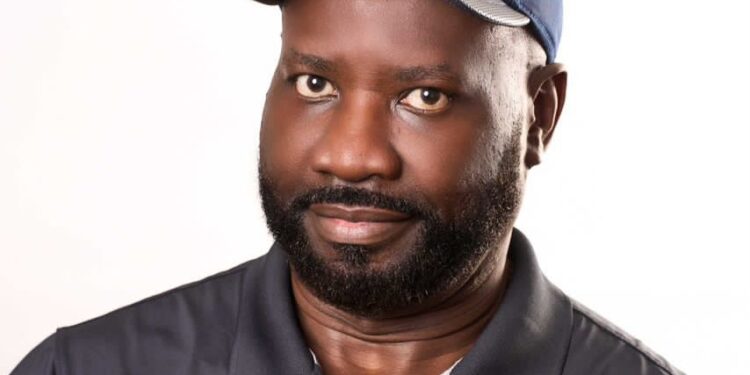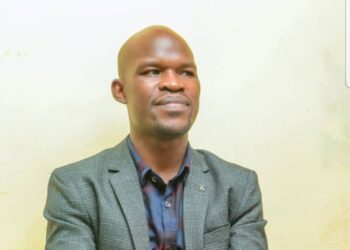In a televised address on Saturday, 15 August 2021, President Museveni warned security forces against torturing suspects or beating demonstrators. “Why do you beat a suspect?” he asked. “Is it because you are too lazy to interrogate him?” He added that confessions from the criminals are unnecessary if the investigators do their job well by collecting sufficient evidence to have them found guilty. Museveni promised to eliminate such torture and purge the culture of reactionary behaviour in the security forces.
Sadly, this is not a new situation in Uganda, as I know from personal experience. I grew up in Mityana during the 1980s NRA war. One night, government soldiers came to our house and began beating my father. They ordered him to confess that he was a supporter of the National Resistance Army (NRA). Since that night, I understand why innocent people confess to crimes they haven’t committed.
Most people believe they wouldn’t confess to a crime they hadn’t committed. After all, it is counter-intuitive that an innocent person would do this. It is undoubtedly true that false confessions are usually retracted. However, once given, they are difficult to deny. Based on what I saw as a child, I know that innocent people can be made to confess. So, what makes an innocent person admit to a serious crime?
The practice of coercive interrogation
In Canada, investigators use a type of interrogation known as the Reid Technique, named after former Chicago police officer John Reid. Before an interrogation, suspects are observed for signs of lying and truth-telling. If the interviewer thinks they are lying, they interrogate them in a way that presumes guilt, interrupting any denials and refusing to believe their account.
As part of this technique, interviewers may also lie about evidence. For example, they may tell the suspect that their DNA was found at the scene. If a suspect thinks the Judge will find them guilty, confessing may rationally seem the best thing to do.
The Reid technique can even convince some innocent suspects that they are guilty. Suspects will sometimes re-enact a crime they did not commit. In such cases, their detailed knowledge of the crime is damning yet may have been fed to them during interrogation.
A fairer method: investigative interviews
In other countries, these coercive techniques are not permitted. Instead, they use a method known as ‘Investigative Interview.’ It focuses on gathering information rather than obtaining a confession.
With this technique, suspects are treated more fairly, and the evidence that is produced is of higher quality. It is also mandatory to make an audio/video recording of the interview, which acts as an extra safeguard. In fact, in many countries, there must be independent evidence supporting the confession.
Identifying vulnerable individuals
Some people are more at risk of being influenced by manipulative interview techniques than others. Those who are more suggestible or who aim to please are particularly vulnerable.
Such people are more likely to agree with an officer’s account of the event or change answers based on feedback. Low self-confidence and even sleep deprivation can further increase the likelihood of a false confession.
Fans of the TV series Making a Murderer will recognise such questions from the interviews of Brendan Dassey. Despite being a minor with a below-average IQ, he was interviewed without a lawyer, and many believe it was a coercive interrogation. He confessed to playing a part in the murder of Teresa Halbach and is currently serving a life sentence.
Children and vulnerable adults are particularly susceptible to false confessions. They may have less understanding of the consequences or may focus on the short-term reward of finishing the interview.
Certain types of questions can also lead to inaccurate accounts. Leading questions can alter a person’s memory of an event. They might narrow response options or presume certain information to be true. My research revealed that asking people whether they had seen “the” broken headlight rather than “a” broken headlight doubled the number who falsely remembered seeing it.
There will always be guilty people who deny their crimes. However, we must remember the presumption of innocence until guilt is proven. There is a high risk of false confessions in some countries, and even in Uganda, they are not eliminated entirely. To prevent further miscarriages of justice, it is vital to recognise suspects’ psychological vulnerabilities and put appropriate procedures in place to protect them.
How false confessions are extracted
Physical coercion is the most obvious factor leading to a false confession, but it is unlikely to be used in a modern criminal interrogation. Psychological coercion, however, is a prevalent and powerful tool. It can include telling the suspect lies about the evidence or implying that they will receive lenient treatment if they confess.
Throughout Africa, the most common interrogation method taught to police is the coercive Reid Technique. This technique leverages psychological tactics to obtain confessions from suspects in two key stages: the pre-interrogation interview and the interrogation.
In the pre-interrogation interview, the interrogator must determine whether a suspect is truthful when they deny their involvement in a crime. Reid technique interrogators are instructed that truthful and deceptive suspects differ noticeably in their behaviour. For instance, honest suspects sit comfortably upright; deceptive suspects maintain a rigid or avoidant posture.
The interrogation’s goal now is to extract a confession from the suspect using a range of psychological tactics. For example, the interrogator should accuse the suspect, confronting them with real or fabricated evidence, and reject the suspect’s denials. The interrogator should also empathise with the suspect, thus implying that confession will be met with understanding.
This interaction places significant pressure on the suspect, regardless of their guilt or innocence, to confess. The interrogator’s predetermination that the suspect is guilty has a strong influence on the behaviour of both suspect and interrogator.
The way forward
In his national address, Museveni promised to sensitise the security forces against these abuses. He also vowed that those who refuse to reform would be dealt with, with a firm hand.
To make significant changes, we need to address the process and the attitude towards investigations. The term “interrogation” should not be used in Uganda. The process should be referred to as “investigative interviewing” to emphasise that the interview with the suspect is an ongoing part of the investigation. This will help to disassociate practice from the coercive Reid technique.
I believe it is essential that police officers should be trained to focus on securing information, not presuming the suspect’s guilt and aiming to secure a confession. Only when we shift the focus towards extracting information rather than confession will we see positive change.
Richard Musaazi
Digital Forensic Investigator
www.richardspi.com
Do you have a story in your community or an opinion to share with us: Email us at editorial@watchdoguganda.com














